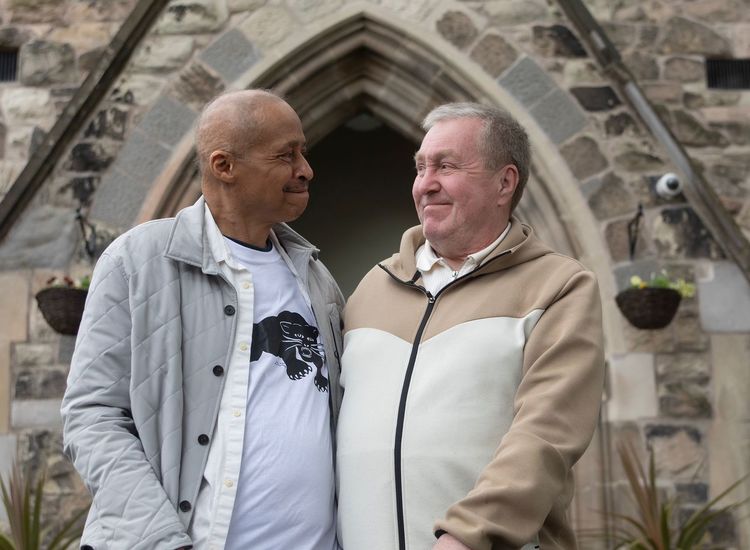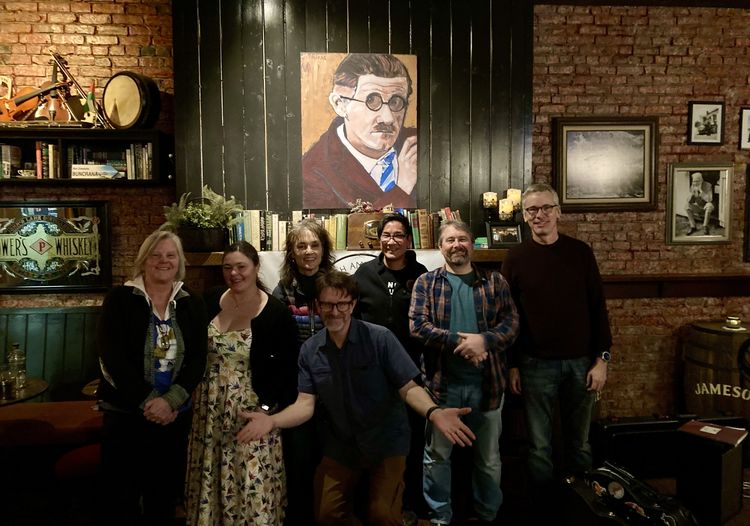IN 1968 growing up in the New Lodge, Joe Doherty watched Martin Luther King on his parents' black and white TV making his historic ‘I Have a Dream’ speech. It struck a chord with the 13-year-old growing up in a city where he was starting to become aware of the unionist state’s discrimination against Catholics in housing and employment. His parents didn’t own property and as a consequence were further discriminated against when it came to the vote.
Fifteen years later he would find himself incarcerated in the overcrowded high-rise Metropolitan Correctional Centre (MCC) in New York City alongside other prisoners who were caught up in the civil rights struggle in the States. One such inmate was Jamal Joseph, who had joined the Black Panthers after the assassination of Dr King and was now on his third stretch inside, this time as a member of the Black Liberation Army.
On Thursday the men had an emotional reunion in the Duncairn Centre on the Antrim Road. It was the first time in 40 years that they had met.
“He looks well,” smiled Joe. “I always check him out on Google and keep track of him and the other political prisoners we were with.”
Jamal is now a noted writer and filmmaker. He's in Belfast this week researching the four months that escaped slave Frederick Douglass spent in Ireland in 1845. As they spoke, both men reflected on their own incredible journeys and the many twists and turns in their lives.
The discrimination that Joe Doherty saw around him in his youth would first lead him to throwing stones at the British army when they came on to the streets of Belfast in 1969, and eventually to joining the IRA. In 1980 he was arrested with other members of an IRA unit after a gun battle with an undercover British army unit in which an SAS captain was killed. The following year Joe and seven other IRA men shot their way out of Crumlin Road jail in a daring escape. It wasn’t long before he was making his way to the United States on a false passport, where he began working in construction “living a normal life until June 18th 1983 when I was arrested by the FBI and taken to the Metropolitan Correctional Centre”.
“When I went for bail the judge said, ‘Get him out of here – this is like one of the Black Panthers shooting one of our police offices and looking for bail.'”
It was then that Joe realised that he had a job on his hands convincing the American judicial system not to extradite him back to the North of Ireland. But even in his darkest days in MCC he didn't think this new battle in his life would take nine years, with his legal team arguing that the killing of SAS captain Herbert Westmacott was a political act and as such he was immune from extradition. When the US authorities lost that particular legal battle they went after Joe for entering the country illegally.
During those long years in prison, Joe says he met many like-minded people like Jamal where he said he developed a greater understanding of the black struggle in the States.
The moment Joe and Jamal met for the first time in over 40 years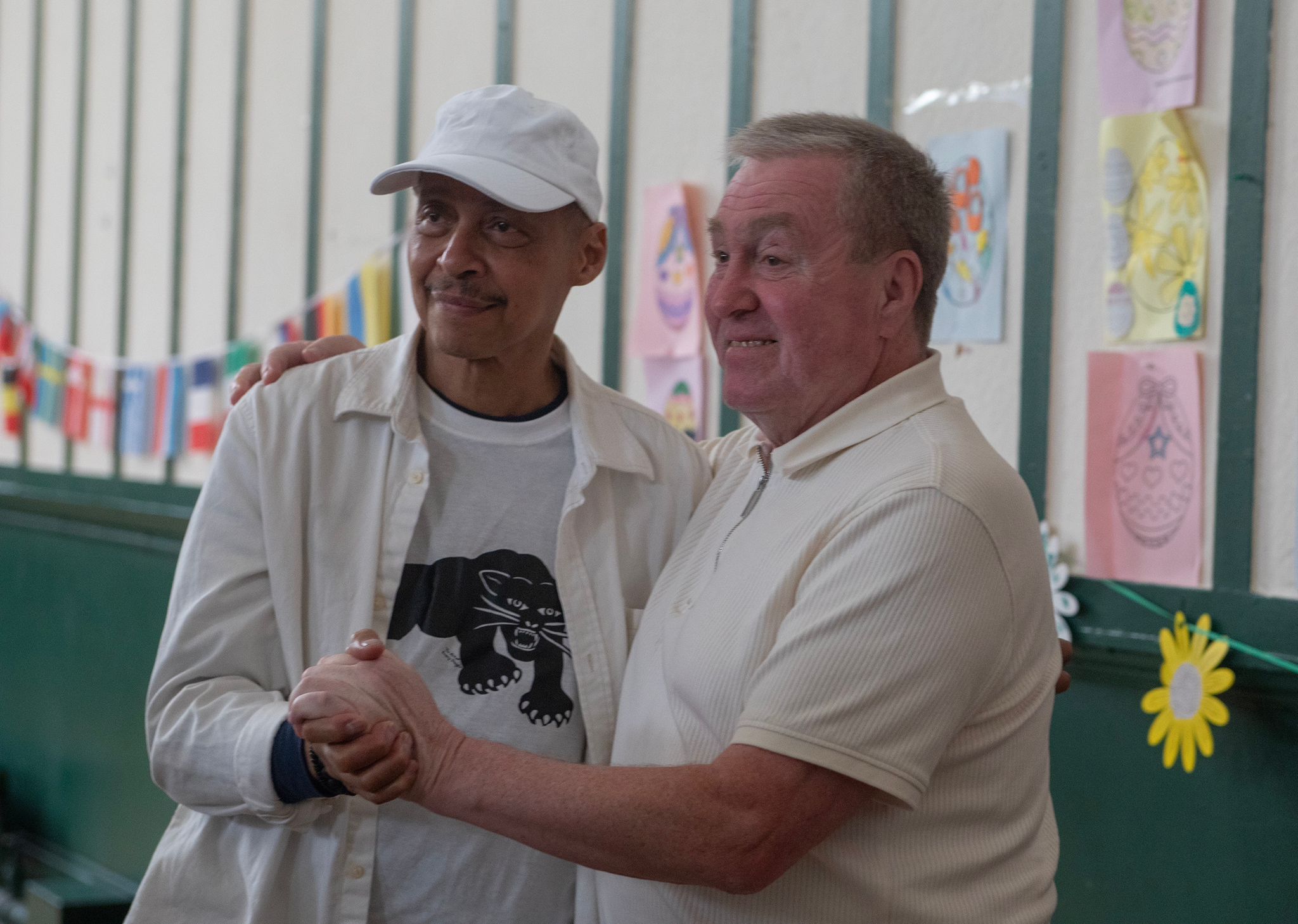
“I already had an understanding of the struggle because when I was in the internment camp (Long Kesh) I signed a petition to release Angela Davis and at the same time I also read Soledad Brother which was a big read for us and had a big influence on us in prison,” he told Jamal.
The two men became interested in each other’s struggles and learned from each other while locked away in an infamously grim prison that had no natural light or fresh air. They spoke fondly of other revolutionaries they had known during those years, many of whom have since passed away.
Reflecting on that period, Joe recalls that the 1980s was a time when “the left was in prison”. Now an intersection outside the Metropolitan Correctional Centre is named Joseph Doherty Corner and Joe has since got a university degree and has been involved in youth work in North Belfast and cross-community projects ever since.
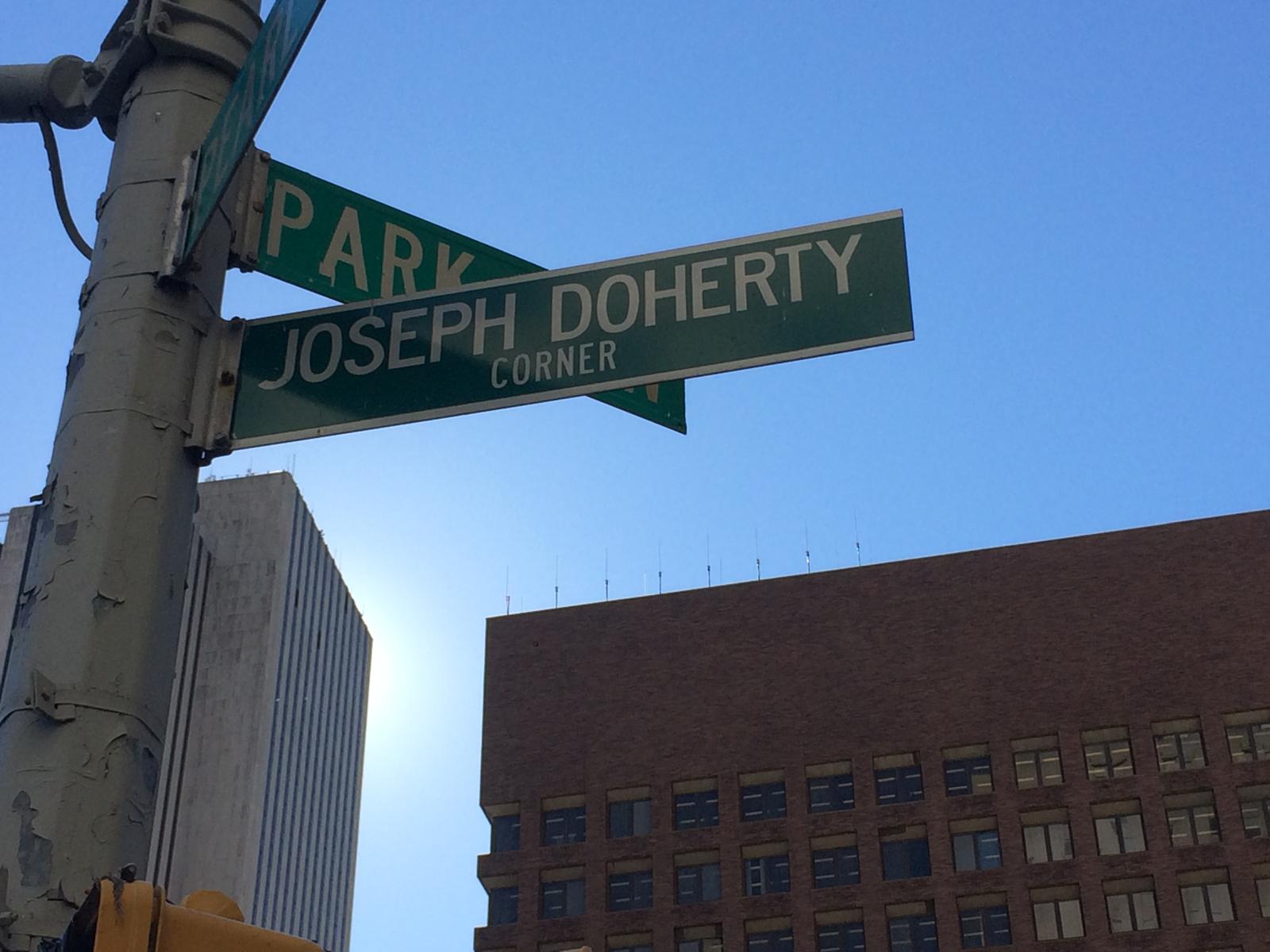
After being transferred out of MCC, it was in Leavenworth State Penitentiary in Kansas that Jamal wrote his first play which helped chip away at the barriers that existed between the different gangs in that particular institution.
“We realised that we were being oppressed by the same system and this divide and conquer thing works for them,” he recalled.
The Rev Bill Shaw from the Duncairn Centre with Jamal Joseph and Joe Doherty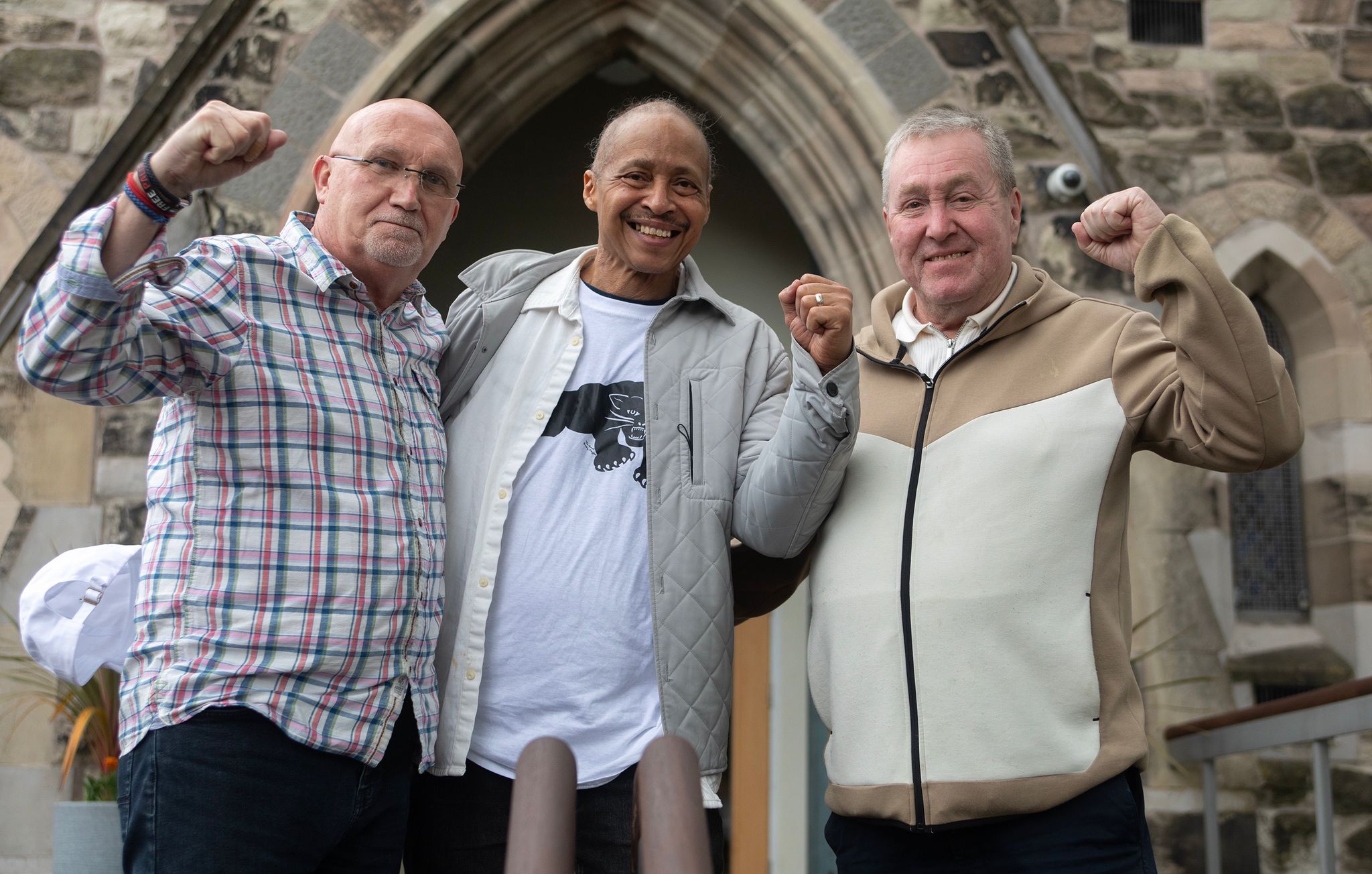
“When I got out I started doing theatre and film and being a youth mentor. I started programmes that brought kids together using theatre and activism, so I did that over the years. We did a film with Jim Sheridan’s daughter, Kirsten Sheridan, and it’s called August Rush, and when you see the film there’s a scene where this kid runs into this church in Harlem and there’s a gospel choir singing, but those are the kids from this youth programme and we wrote the song and got nominated for an Oscar. So I’m a writer-director, but my Oscar nomination is for Best Song.”
Also a professor at Columbia University, Jamal recently produced a documentary on his godson Tupac Shakur. Now he's turning his attention to Frederick Douglass’ period in Belfast – a project which has brought him back in touch with Joe Doherty.
Looking back at that time in prison Jamal says: “Wherever we went, there was this crew and that crew – but the freedom fighters had our own crew and nobody f***ed with us because we were together and we had put together this rainbow coalition and we were the ones who were fighting against the administration and the guards, so we had a respect from the whole prison population.”
Looking at Joe he smiled.
“It’s like seeing an old friend and comrade. The analogy I can give you is that it’s like we were on the same football team together or the same military unit together because we were prisoners of war. We shared food, we shared stories, we watched each other’s backs. So, it’s like 40 years have passed, but not.”

